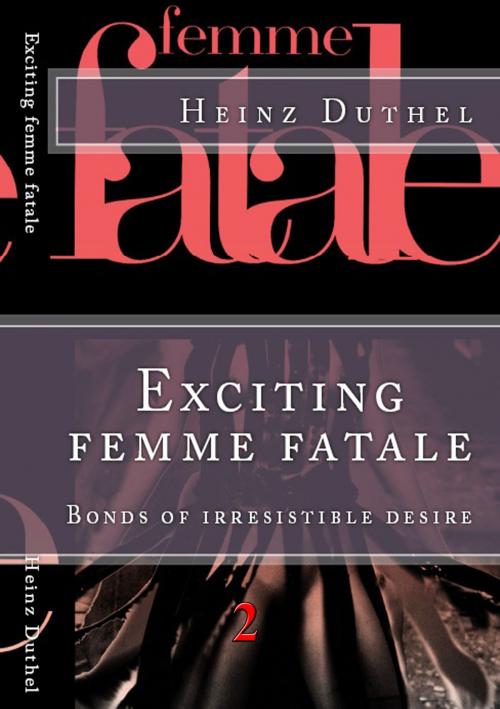‘Les Femme fatales’ II
... follicular phase of the cycle begins.
Nonfiction, Social & Cultural Studies, Social Science, Sociology| Author: | Heinz Duthel | ISBN: | 9783734703768 |
| Publisher: | BoD E-Short | Publication: | February 19, 2014 |
| Imprint: | Language: | English |
| Author: | Heinz Duthel |
| ISBN: | 9783734703768 |
| Publisher: | BoD E-Short |
| Publication: | February 19, 2014 |
| Imprint: | |
| Language: | English |
From puberty to menopause woman is the theatre of a play that unfolds within her and in which she is not personally concerned. Anglo-Saxons call menstruation ‘the curse’; in truth the menstrual cycle is a burden, and a useless one from the point of view of the individual. In Aristotle’s time it was believed that each month blood flowed away that was intended, if fertilization had occurred, to build up the blood and flesh of the infant, and the truth of that old notion lies in the fact that over and over again woman does sketch in outline the groundwork of gestation. In lower mammals this oestrus cycle is confined to a particular season, and it is not accompanied by a flow of blood; only in the primates (monkeys, apes, and the human species) is it marked each month by blood and more or less pain. [‘Analysis of these phenomena in recent years has shown that they are similar in woman and the higher monkeys and apes, especially in the genus Rhesus. It is evidently easier to experiment with these animals,’ writes Louis Callien (La Sexualité).]
From puberty to menopause woman is the theatre of a play that unfolds within her and in which she is not personally concerned. Anglo-Saxons call menstruation ‘the curse’; in truth the menstrual cycle is a burden, and a useless one from the point of view of the individual. In Aristotle’s time it was believed that each month blood flowed away that was intended, if fertilization had occurred, to build up the blood and flesh of the infant, and the truth of that old notion lies in the fact that over and over again woman does sketch in outline the groundwork of gestation. In lower mammals this oestrus cycle is confined to a particular season, and it is not accompanied by a flow of blood; only in the primates (monkeys, apes, and the human species) is it marked each month by blood and more or less pain. [‘Analysis of these phenomena in recent years has shown that they are similar in woman and the higher monkeys and apes, especially in the genus Rhesus. It is evidently easier to experiment with these animals,’ writes Louis Callien (La Sexualité).]















